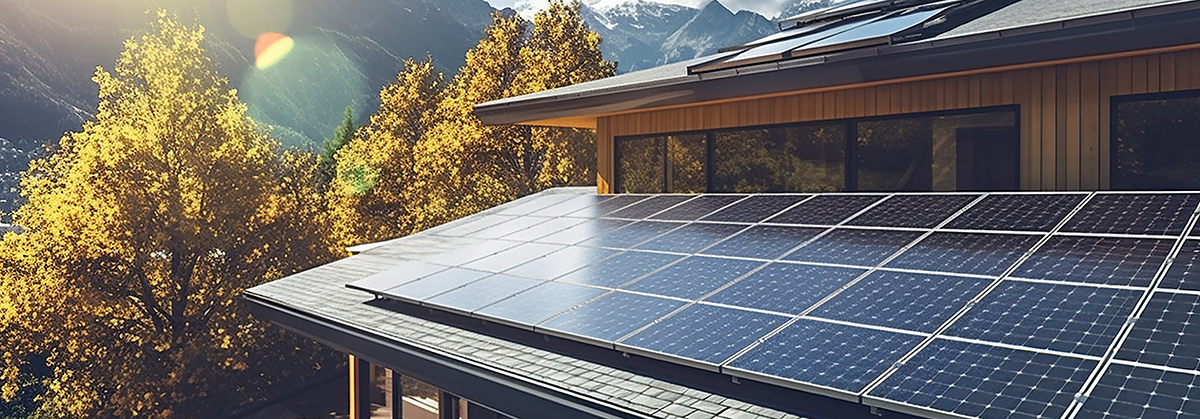
Introduction:
As the world increasingly embraces solar energy as a sustainable power source, many homeowners find themselves on the journey to harness the sun’s power through solar panel installations. However, as energy needs evolve and households grow, the question often arises: Is your existing solar system meeting your current demands? In this comprehensive guide, we will explore the signs that indicate it might be time to consider adding more solar to your existing system.
- Assess Your Energy Consumption:
The first step in determining whether you need to add more solar to your existing system is to assess your current energy consumption. Over time, household energy needs may change due to lifestyle adjustments, new appliances, or the addition of new family members. Understanding your energy usage patterns is crucial in evaluating the effectiveness of your current solar setup.
Start by reviewing your utility bills to track your monthly energy consumption. If you notice a consistent increase in energy usage, it could be an indication that your current solar capacity is no longer sufficient to meet your needs.
- Monitor Solar System Performance:
Efficient solar energy production relies on the optimal functioning of your solar panels. Regularly monitoring your solar system’s performance is essential to ensure that it is operating at peak efficiency. If you observe a decline in energy production or notice any technical issues with your solar panels, it may be a sign that your system needs attention.
Modern solar systems often come with monitoring tools that allow homeowners to track energy production in real-time. Take advantage of these tools to identify any fluctuations or drops in performance. If issues persist, it may be time to consult with a solar professional to assess whether expanding your solar capacity is the solution.
- Evaluate Changes in Energy Needs:
Life changes, and so do energy needs. If you’ve made additions or renovations to your home that increase energy consumption, such as adding rooms, installing new appliances, or incorporating an electric vehicle into your lifestyle, your existing solar system may no longer suffice.
Consider the energy demands of new additions or lifestyle changes and evaluate whether your current solar capacity can accommodate these shifts. If not, expanding your solar system can ensure that your energy production aligns with your evolving needs.
- Review Net Metering Credits:
Net metering is a system that allows homeowners with solar panels to receive credits for excess energy produced and fed back into the grid. If you consistently find that your solar system is generating surplus energy, and you’re accruing net metering credits regularly, it might be an opportune time to consider adding more solar capacity.
Expanding your solar system allows you to capitalize on the excess sunlight your location receives, maximizing the benefits of net metering and potentially reducing or eliminating your electricity bills.
- Consider Changes in Environmental Factors:
The efficiency of solar panels is influenced by environmental factors such as shading, weather conditions, and the angle and orientation of the panels. Changes in your surroundings, such as the growth of nearby trees or the construction of new structures, may impact the amount of sunlight reaching your solar panels.
If you’ve noticed increased shading or changes in the solar access on your property, it could affect the overall performance of your solar system. In such cases, expanding your solar capacity or adjusting the placement of your panels might be necessary to optimize energy production.
- Evaluate Solar Technology Advancements:
The solar industry is continually evolving, with advancements in technology leading to more efficient and cost-effective solar panels. If your existing solar system is comprised of older panels that are less efficient, upgrading to newer, high-performance panels could be a compelling reason to add more solar to your setup.
Newer solar technologies often come with improved energy conversion rates, enhanced durability, and better resistance to environmental factors. Assessing the cost-effectiveness of upgrading your system with the latest solar innovations can be a wise investment in the long run.
- Calculate Return on Investment (ROI):
Expanding your solar system involves an upfront investment, and it’s essential to evaluate the potential return on that investment. Calculate the anticipated energy savings, factoring in any government incentives, tax credits, or rebates available for solar installations.
Consider the payback period for the additional solar capacity and how it aligns with your financial goals. If the ROI indicates a reasonable payback period and long-term savings, it may be a prudent decision to add more solar to your existing system.
- Consult with Solar Professionals:
When in doubt, seek the guidance of solar professionals. Experienced solar installers can conduct a comprehensive assessment of your current system, taking into account your energy needs, property characteristics, and any changes in environmental factors. Their expertise can provide valuable insights into whether expanding your solar capacity is the most effective solution for your specific situation.
Solar professionals can also guide you through the process of obtaining any necessary permits, evaluating the feasibility of additional solar panels on your property, and ensuring that the expanded system adheres to local regulations and standards.
Conclusion:
As solar energy continues to be a cornerstone of sustainable living, ensuring that your solar system aligns with your evolving needs is crucial. By regularly assessing your energy consumption, monitoring your system’s performance, and considering changes in your household and environmental factors, you can determine whether it’s time to add more solar to your existing setup.
Expanding your solar capacity not only addresses increased energy demands but also positions you to take advantage of advancements in solar technology and maximize the financial benefits of renewable energy. Whether motivated by environmental consciousness, energy independence, or financial savings, investing in additional solar panels can be a forward-thinking and rewarding decision for homeowners committed to a cleaner and more sustainable future.
